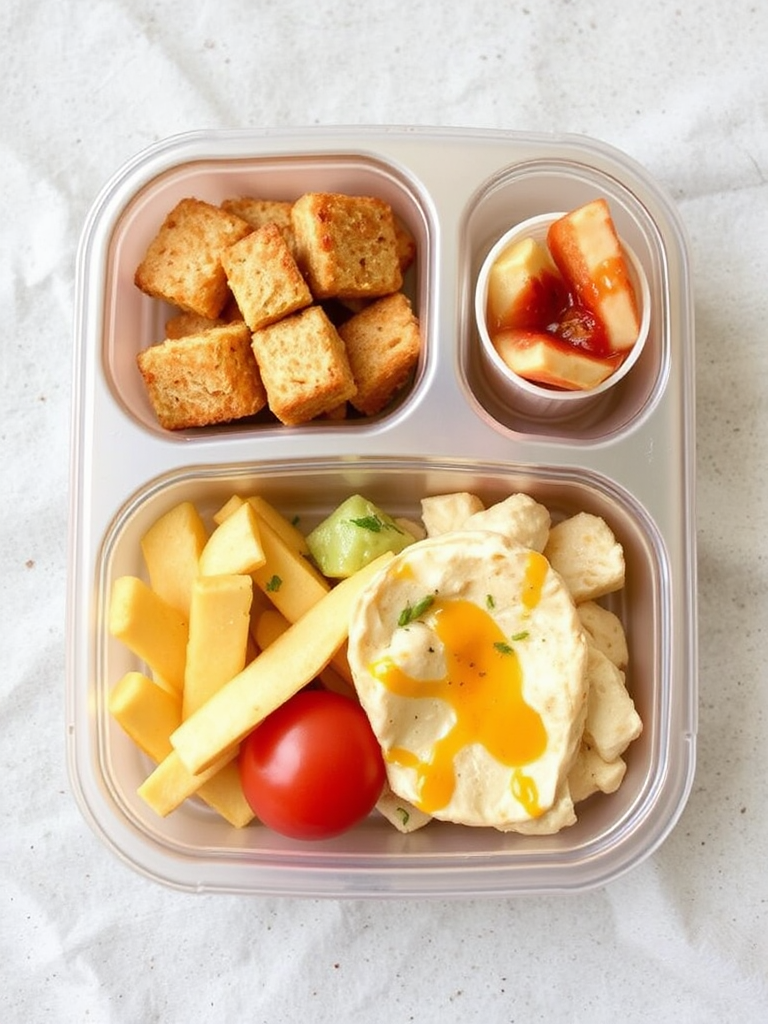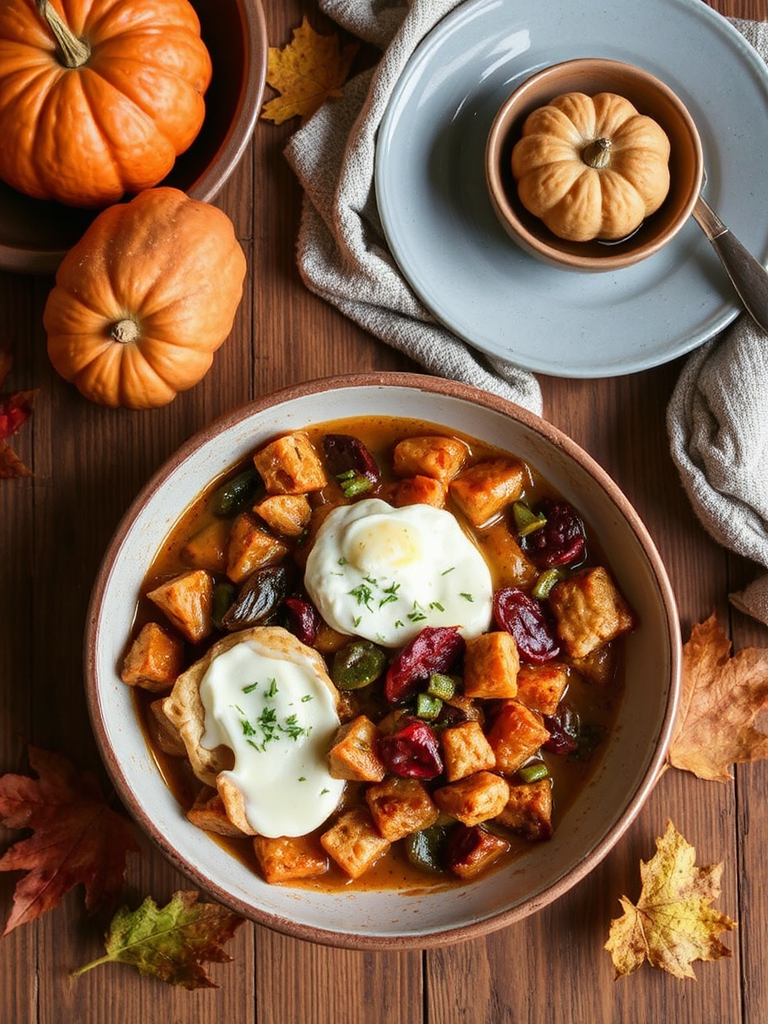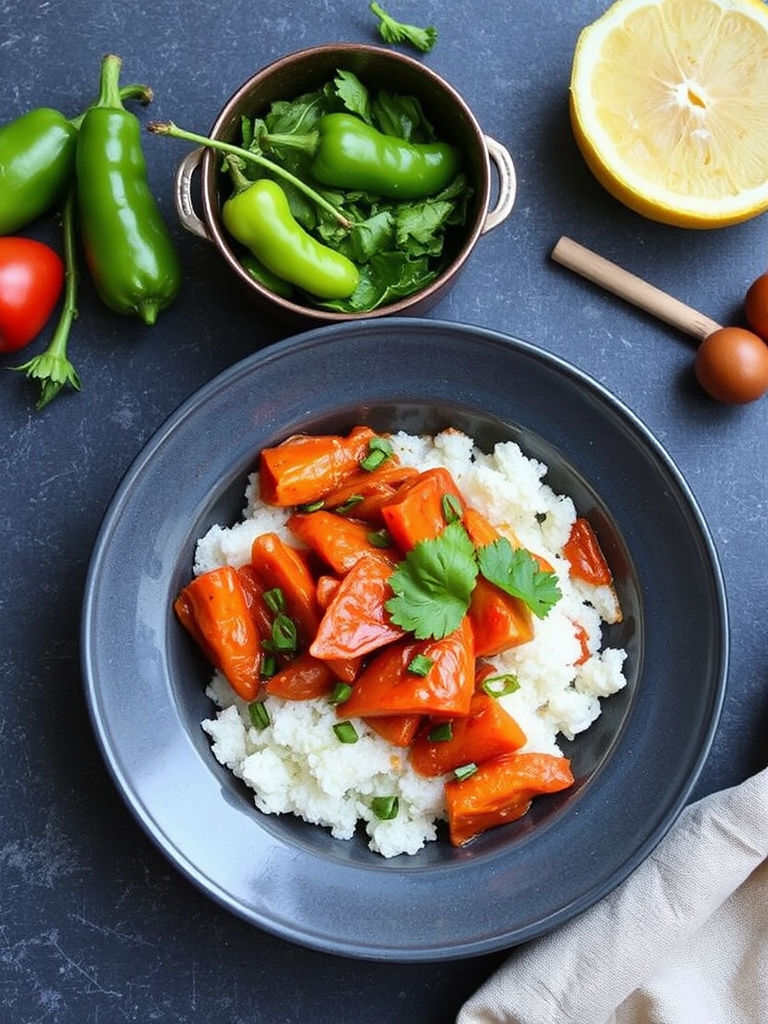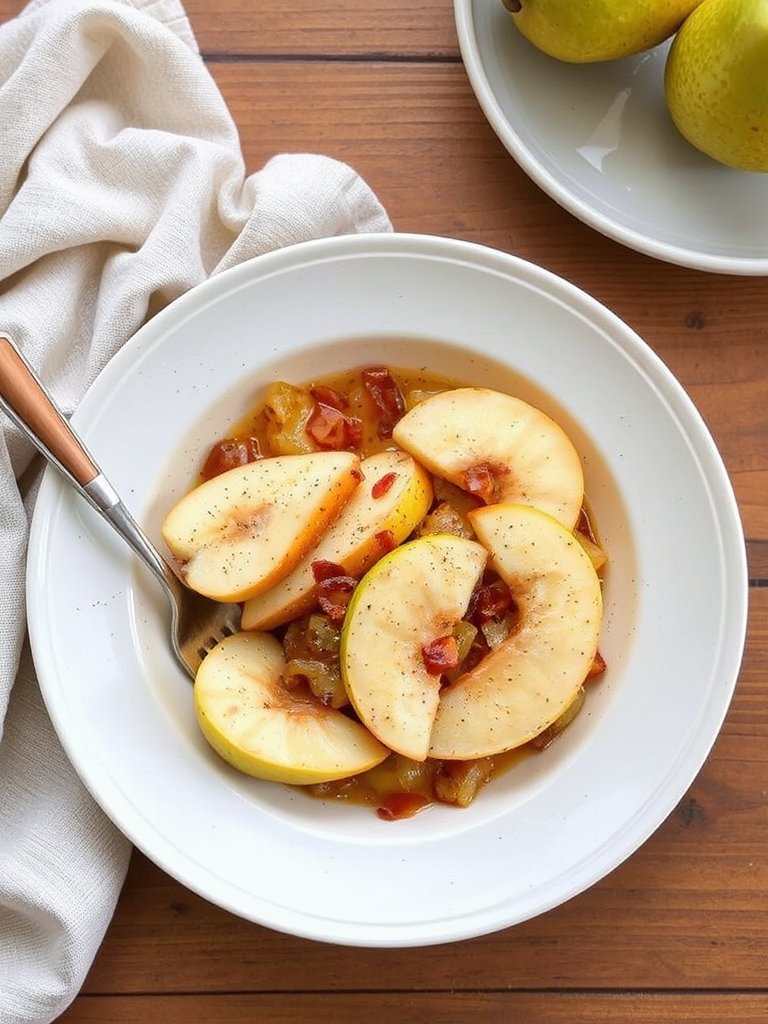Breakfast is, without a doubt, the most important meal of the day, especially for babies who are in a critical stage of growth and development. A well-balanced breakfast not only helps ensure that babies receive the essential nutrients they need for energy, cognitive development, and healthy growth but also establishes good eating habits early on. This guide offers a comprehensive look at a variety of baby breakfast ideas that are nutritious and easy to prepare, making them suitable for different stages of a baby’s development.
Why Is a Nutritious Breakfast Important for Babies?
A nutritious breakfast is crucial because it provides the essential fuel needed to start the day. Babies grow rapidly during their first two years of life, and their brains develop at an extraordinary rate. Therefore, it is vital to provide a well-rounded breakfast that includes a variety of proteins, healthy fats, and carbohydrates. Moreover, offering healthy baby breakfast ideas benefits more than just physical growth; it also supports cognitive development and helps establish a foundation for lifelong healthy eating habits.
According to the American Academy of Pediatrics, it is important to introduce a variety of foods early on. Doing so can help prevent picky eating habits and encourage the acceptance of new flavors and textures. Additionally, offering a mix of fruits, vegetables, whole grains, and proteins will provide essential nutrients like iron, calcium, protein, and vitamins that are vital for development. For more insights, you can learn about the best foods for your baby from this comprehensive guide on introducing solid foods. Introducing diverse baby breakfast ideas can play a key role in this process.
Nutritional Needs for Babies at Different Ages
Understanding the specific nutritional needs of babies at various stages is essential in planning their meals effectively. As babies grow, their requirements change significantly, so it’s important to adjust their diet accordingly. Here are some age-specific baby breakfast ideas that align with their nutritional needs.
Baby Breakfast Ideas for Babies Aged 6-8 Months
At this stage, babies begin transitioning from exclusive breast milk or formula to solid foods. To make this transition smoother, it is crucial to introduce foods gradually and focus on nutrient-dense options in your baby breakfast ideas:
- Iron and Zinc: These nutrients are essential for growth and immune function. Therefore, iron-fortified cereals or purees made with iron-rich foods, like spinach or lentils, are ideal for your baby breakfast ideas.
- Vitamin D: Necessary for bone development. Sun exposure and fortified foods, like formula or cereals, help meet these needs.
- Fats: Important for brain development. Include foods like avocado and full-fat yogurt in your baby breakfast ideas.
Baby Breakfast Ideas for Babies Aged 9-12 Months
As babies become more accustomed to eating solids, their nutritional needs expand significantly. Here are some nutritious baby breakfast ideas for this age group:
- Proteins: Critical for muscle development and repair. Soft-cooked meats, eggs, and legumes are excellent sources and should be included in your baby breakfast ideas.
- Fiber: Promotes healthy digestion. Fruits, vegetables, and whole grains provide the necessary fiber and should be incorporated into your breakfast choices.
- Calcium: Supports bone and teeth development. Dairy products like cheese and yogurt are ideal sources for baby breakfast ideas.
Baby Breakfast Ideas for Toddlers (1-2 Years Old)
Once babies transition to toddlerhood, they need a more varied diet to support their rapid growth and activity levels. At this stage, it becomes essential to introduce a wide range of foods in your baby breakfast ideas:
- Variety: Offering a broad spectrum of foods is crucial to cover all necessary nutrients, including whole grains, lean proteins, healthy fats, and plenty of fruits and vegetables. This variety should be reflected in your baby breakfast ideas.
- Portion Sizes: It is also vital to monitor portion sizes to avoid overfeeding, which could lead to obesity.
- Hydration: Water and milk should be the primary drinks; juice should be limited to small amounts and offered only occasionally as part of your baby breakfast ideas.
Tailored Baby Breakfast Ideas by Age Group
To help you get started, here are some tailored baby breakfast ideas based on your baby’s age group. These ideas will ensure that your baby enjoys a nutritious and balanced diet as they grow.
Breakfast Ideas for Babies Aged 6-8 Months
- Purees: To start, offer single-ingredient purees that are easy to digest and nutrient-rich. For example:
- Avocado Puree: Rich in healthy fats, which are essential for brain development and perfect for your baby breakfast ideas.
- Sweet Potato Puree: Packed with vitamin A for vision and immune support.
- Banana Puree: A good source of potassium, which helps maintain fluid balance and muscle function.
- Baby Cereals: Next, introduce iron-fortified baby cereals like oats, rice, and semolina. Mixing these cereals with breast milk or formula will create a smooth texture. Options include:
- Oatmeal: High in fiber and iron, perfect for supporting digestion and growth. Incorporate oatmeal into your baby breakfast ideas for added nutrition.
- Rice Cereal: Gentle on the stomach and fortified with iron.
- Semolina: Provides a smooth texture that is easy to swallow and digest.
- Soft Fruits: Additionally, steamed and mashed fruits such as apple, pear, or peach provide essential vitamins and are gentle on a baby’s stomach. Incorporate them into your baby breakfast ideas for variety.
- Steamed Apple: A good source of vitamin C and fiber.
- Mashed Pear: Rich in dietary fiber and vitamins.
- Mashed Peach: Contains vitamins A and C, beneficial for growth and immune function.
- Protein-Rich Options: It is also important to include protein-rich options in your baby breakfast ideas.
- Lentil Puree: A great source of iron and protein.
- Mashed Beans: Soft beans like black beans or chickpeas provide fiber and protein.
- Tofu Crumble: Soft and rich in plant-based protein, ideal for vegetarian families.
- Dairy Introductions: Furthermore, you can begin introducing dairy products to your baby breakfast ideas.
- Full-Fat Yogurt: Plain yogurt is rich in calcium and probiotics, which are good for digestive health.
- Cottage Cheese: Soft and easy to digest, providing protein and calcium.
Breakfast Ideas for Babies Aged 9-12 Months
As babies approach their first birthday, they are usually ready for more varied and textured foods. To meet their evolving needs, consider these baby breakfast ideas:
- Finger Foods: Encourage self-feeding with soft finger foods that help develop motor skills. Examples include:
- Mini Pancakes: Made with whole grains or fortified flour, easy to grasp and chew.
- Scrambled Eggs: Soft-cooked and packed with protein.
- Baby Muffins: Made with fruits and whole grains, perfect for little hands.
- Toast with Spreads: Offer small pieces of whole wheat toast with healthy spreads. For instance:
- Avocado on Toast: Rich in monounsaturated fats, which support brain development.
- Peanut Butter Toast: Provides protein and healthy fats (ensure your baby isn’t allergic).
- Yogurt and Smoothies: Combine plain yogurt with fruit purees or create smoothies with ingredients like berries, banana, and spinach for exciting baby breakfast ideas.
- Yogurt with Berries: Probiotic-rich and packed with vitamins.
- Spinach and Banana Smoothie: High in iron and potassium, ideal for breakfast.
- Egg-Based Dishes: Offering egg-based dishes can also be beneficial in your baby breakfast ideas.
- Egg Muffins with Vegetables: Baked in muffin tins with spinach, tomatoes, or bell peppers.
- Soft Boiled Eggs: Serve with a dash of cheese or mild spices.
- Porridge and Grains: Don’t forget to include grains in your baby breakfast ideas.
- Quinoa Porridge: Cooked quinoa mixed with fruits and a little milk for a nutrient-packed meal.
- Rice Pudding: Cooked rice with milk, a little cinnamon, and fruit compote.
Breakfast Ideas for Toddlers (1-2 Years Old)
When your baby transitions to a toddler, they can start eating more complex and diverse meals. Here are some baby breakfast ideas that provide both nutrition and variety:
- Family Foods: Introduce small portions of family foods that are safe and easy to eat, like:
- French Toast Sticks: Whole grain bread dipped in an egg mixture and lightly fried.
- Mini Quiches: Baked with vegetables and cheese, offering protein and nutrients.
- Scrambled Eggs with Cheese: A simple, protein-packed meal that is easy to prepare.
- Healthy Breakfast Cookies or Bars: Make these at home using oats, fruits, and a little honey (for babies over one year old).
- Oatmeal Cookies: Made with rolled oats, mashed banana, and a hint of cinnamon.
- Fruit Bars: Blend dried fruits and nuts for a nutritious snack.
- Whole Grain Options: Serve whole wheat toast with healthy spreads or oatmeal topped with fruits to enhance your baby breakfast ideas.
- Whole Wheat Toast with Nut Butter: A combination of whole grains and protein.
- Oatmeal with Fruits: A fiber-rich option that can be topped with fresh or dried fruits.
- Smoothie Bowls: For a fun twist, try serving smoothie bowls.
- Berry Smoothie Bowl: Blend berries with yogurt and top with granola.
- Tropical Smoothie Bowl: Use mango, pineapple, and coconut milk for a refreshing twist.
- Creative Combinations: Finally, don’t hesitate to get creative with combinations in your baby breakfast ideas.
- Peanut Butter and Banana Wraps: Whole grain tortilla spread with peanut butter, topped with banana slices, and rolled.
- Veggie Breakfast Burrito: Scrambled eggs, avocado, and mild salsa wrapped in a whole grain tortilla.
Quick and Easy Baby Breakfast Recipes
Incorporating these recipes into your routine can make breakfast preparation quick and stress-free. Moreover, these baby breakfast ideas are packed with nutrients to support your baby’s growth.
1. Baked Oatmeal Bites
- Ingredients: Rolled oats, mashed banana, cinnamon, and milk.
- Preparation: Mix all ingredients, place in a muffin tin, and bake until golden brown.
- Nutritional Benefits: Rich in fiber, potassium, and essential vitamins.
2. Smoothie Recipes
- Berry Banana Smoothie: Blend berries, banana, and yogurt for a refreshing and nutritious drink.
- Mango Spinach Smoothie: Combine fresh mango, spinach, and a splash of milk for a vitamin-packed breakfast.
3. Apple and Cinnamon Breakfast Muffins
- Ingredients: Whole wheat flour, applesauce, eggs, and a dash of cinnamon.
- Preparation: Mix ingredients, pour into muffin tins, and bake until fluffy.
- Nutritional Benefits: Provides iron, fiber, and a touch of sweetness without added sugar.
4. Veggie-Packed Omelets
- Ingredients: Eggs, spinach, tomato, cheese.
- Preparation: Whisk eggs, pour into a pan, and add chopped vegetables. Fold and cook until set.
- Nutritional Benefits: High in protein and vitamins, suitable for growing babies.
5. Whole Grain Waffles
- Ingredients: Whole grain flour, eggs, milk, and a touch of cinnamon.
- Preparation: Mix ingredients and cook in a waffle iron. Serve with fresh fruit or a dollop of yogurt.
- Nutritional Benefits: Rich in fiber and whole grains.
Creative Baby Breakfast Combinations
Here are some creative combinations to keep breakfast interesting and nutritious:
- Egg Muffins with Vegetables: Bake eggs with finely chopped vegetables in muffin tins for an easy finger food.
- Benefits: High in protein and packed with vitamins.
- Recipe: Mix eggs, spinach, tomatoes, and a pinch of cheese. Bake in a muffin tin until firm.
- Peanut Butter and Banana on Toast: Spread peanut butter on whole grain toast and top with banana slices.
- Benefits: Offers a combination of healthy fats, protein, and potassium.
- Recipe: Toast whole grain bread, spread with natural peanut butter, and layer with thin banana slices.
- Pumpkin Pancakes with Apple Compote: Fluffy pancakes made with pumpkin puree and served with a side of homemade apple compote.
- Benefits: Rich in vitamin A, fiber, and natural sweetness.
- Recipe: Combine whole wheat flour, pumpkin puree, eggs, and spices. Fry in a pan and serve with a warm apple topping.
- Stuffed French Toast:
- Ingredients: Whole wheat bread, cream cheese, strawberries.
- Preparation: Sandwich cream cheese and strawberries between two slices of bread, dip in egg mixture, and cook on a skillet.
- Nutritional Benefits: A sweet and savory combination providing calcium, protein, and fruit.
- Avocado and Egg Breakfast Tacos:
- Ingredients: Small tortillas, scrambled eggs, diced avocado, mild salsa.
- Preparation: Fill tortillas with scrambled eggs, avocado, and a spoonful of salsa.
- Nutritional Benefits: A balanced meal rich in protein, healthy fats, and fiber.
Healthy Alternatives and Ingredient Substitutions
If your baby has allergies or dietary restrictions, consider these healthy alternatives:
- Dairy-Free: Substitute regular yogurt or milk with coconut yogurt or almond milk.
- Gluten-Free: Use gluten-free oats or rice cereal.
- Egg-Free: Replace eggs in recipes with mashed banana or applesauce.
- Nut-Free: Use sunflower seed butter or tahini instead of peanut butter.
- Sugar-Free: Rely on fruits like bananas, apples, or dates to naturally sweeten recipes.
FAQs About Baby Breakfasts
To address some common concerns, here are frequently asked questions about baby breakfasts:
- What should a baby eat for breakfast? A mix of fruits, cereals, and small portions of proteins like eggs or yogurt.
- Can I give my baby eggs for breakfast? Yes, eggs are a great source of protein, but make sure they are fully cooked to avoid any risk of salmonella.
- What breakfast foods should I avoid for babies? Avoid honey (for babies under one year), whole nuts, and any hard foods that could be choking hazards.
- How do I prepare finger foods safely for my baby? Ensure foods are soft, cut into small pieces, and always supervise your baby while eating.
- How often should I introduce new foods? Introduce one new food every three to five days to monitor for potential allergies.
- Are smoothies a good option for babies? Yes, smoothies can be a great way to introduce a variety of fruits and vegetables, but ensure they are made with age-appropriate ingredients.
Tips for Efficient Breakfast Preparation
Here are some tips to help make breakfast preparation more efficient:
- Batch Cooking: Prepare large quantities of purees, pancakes, or muffins and freeze in individual portions.
- Meal Prep Ideas: Set aside time once a week to prep ingredients, chop fruits, or make smoothie packs that are ready to blend.
- Storage Tips: Use airtight containers or silicone molds for freezing purees and other baby foods.
- Safety Tips: Always check the temperature of food before serving to avoid burns.
Internal Linking Opportunities
To further enhance your knowledge of baby-friendly recipes, check out the following resources from Mira Recipes:
- For more creative ideas on breakfast foods, visit “Toddler Breakfast Ideas: A Comprehensive Guide for Nutritious and Easy Mornings”.
- If you are interested in making pancakes for your baby, explore “Pancake Recipe No Milk: Easy, Fluffy, and Delicious Dairy-Free Pancakes”.
- Looking for more gluten-free options? See “Gluten-Free Breakfast Ideas: Delicious and Nutritious Options for Every Morning”.
Conclusion
In conclusion, starting the day with a nutritious breakfast is key to supporting your baby’s growth and development. By offering a variety of baby breakfast ideas, you can help your child develop a love for healthy eating that will last a lifetime. Remember to introduce diverse foods, focus on balanced nutrition, and enjoy the process of discovering what your baby loves most.
By following these tips and recipes, you can make breakfast both enjoyable and nourishing for your little one. So, explore the joys of mealtime, and watch your baby thrive with each delicious bite!






